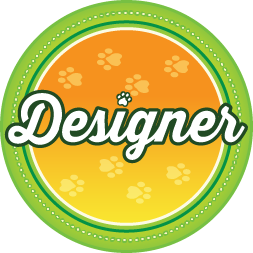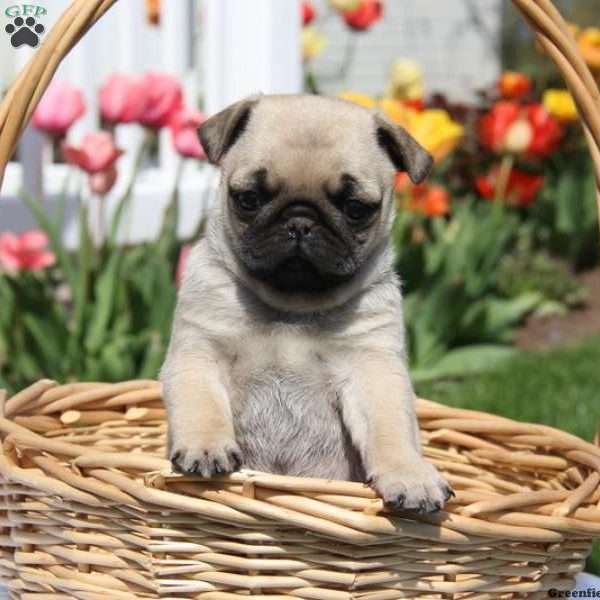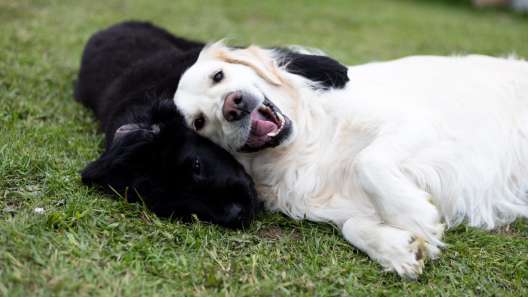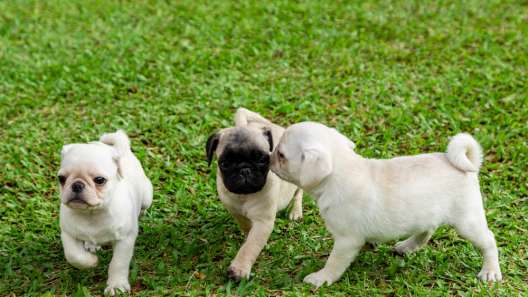
-
Activity Level:
low
-
Shedding Level:
high
-
Grooming Level:
low
-
Trainability:
moderate
-
Good for Novice Owners:
high
-
Adaptability:
high
-
Kid/Pet Friendly:
often
-
Prey Drive:
low
-
Watchdog:
very alert
- Average Size: Small
- Average Lifespan: 10-13 years
Chug Dog Breed Information
Overview
Temperament
Adaptability
Health
Owner Experience
Grooming
Activity Level
Size
Life Span
Did You Know?
A Chug, or a Miniature Pug, is a cross between a Chihuahua and a Pug. In general, these dogs are playful, energetic, and loving companions with charming personalities. They tend to resemble a Pug, but are smaller and sometimes have slightly longer snouts.
Chug puppies tend to be loving and affectionate little dogs with a social and friendly disposition. They tend to get along with just about everyone including children, other dogs, and other pets. They can be initially reserved with strangers, but tend to warm up quickly as they bask in the attention from new friends.
Because they are so small, they can be easily injured by young children who are still learning to walk or master fine motor control. So, interactions between young kids and puppies should be closely supervised, and this dog may be a better fit for families with older children. Mini Pugs can be prone to barking a lot, especially alert barking. So, you do want to work with them early on to train your dog to stop barking and keep it from becoming a nuisance behavior.
Chugs tend to be highly adaptable dogs that do well in apartments as well as larger homes. Because they are a brachycephalic dog that cannot regulate their own temperature well, they are extremely sensitive to heat.
Their protruding eyes, small size, and short coat also mean they will likely need some winter dog products to stay warm while out on walks during the cold months. As a companion breed that thrives on attention, they do not like to spend a lot of time alone.
Potential health concerns in a Chug include respiratory issues, corneal ulcers, intervertebral disc disease, myelopathy, patellar luxation, and canine epilepsy. Good breeding practices make a big difference in the health of a dog and reputable breeders will screen their dogs to avoid passing issues to puppies. So, make sure you are asking about the health of the parents and about any health tests that have been done.
Overall, a Chug is intelligent and eager to please. However, they can be stubborn and strong-willed. As long as training is consistent and positive, they are a good fit for owners of all experience levels. Even if you don’t need them for training, there are several benefits of puppy training classes that still make them a good idea.
A Chug has a short, glossy coat that will shed moderately year-round. They require brushing a few times a week and bathing as needed. You will also need to check and clean their facial wrinkles and eyes regularly.
In addition to coat care, you will also need to take care of your Miniature Pug’s nails, ears, and teeth. Cutting your dog’s nails once or twice a month keeps them from growing too long. Checking ears weekly and carefully cleaning them as needed can help prevent ear infections.
As a small dog breed, a Chug is more prone to developing dental problems. By practicing good dental care for dogs early and throughout your dog’s life, you can help prevent painful dental diseases. Daily brushing with a dog-friendly toothpaste or enzyme toothpaste, in addition to cleanings at the vet, is ideal.
A Chug will be energetic when they play, but they will also tire out easily and don’t require a lot of exercise to be happy and healthy. Daily walks plus some playtime are usually enough for this little dog. Just keep some safe ways to exercise flat-faced dogs in mind, like bringing water, taking breaks, etc., as you get in some daily activity or do something more rigorous.
A fully-grown Chug tends to stand 8-10 inches tall and weighs 3-10 pounds.
Mini Pugs generally live for 10-13 years on average.
A Chug is also sometimes called a Miniature Pug, Mini Pug, Chugg, PugChi, or Pughuahua.









